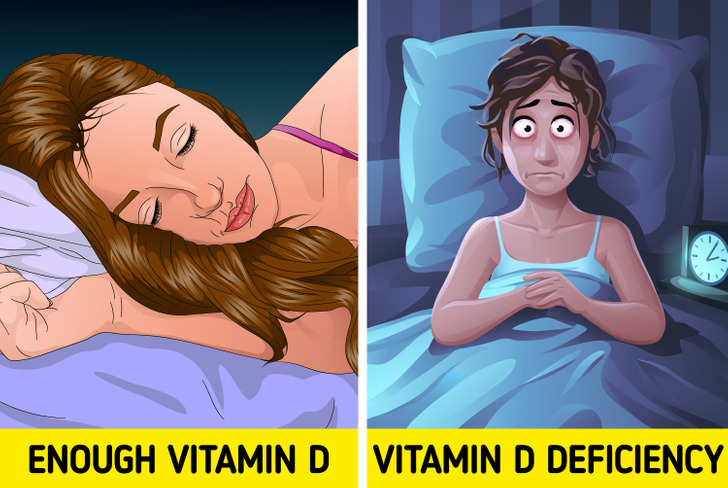
Macular degeneration is the leading cause of vision loss. It's also called age-related macular degeneration. Your macula is part of your retina -- the area in the back of your eye that turns images into signals that go to your brain. It lets you see small details clearly. When the macula starts to break down, you have trouble seeing those kinds of things. For example, you might be able to see a clock's outline, but not make out its hands.
SYMPTOMS

Early signs include blurred vision and trouble seeing color and fine details. As the disease gets worse, you lose your center vision. You may have trouble reading, driving, and making out people's faces. You will need brighter light to do daily tasks and will find it harder to judge distances or go up and down steps. Visual hallucinations -- seeing things that aren't really there -- are also a sign.
WHO GETS IT?

It affects more than 10 million Americans -- more people have it than cataracts and glaucoma combined. People over 60 are diagnosed with macular degeneration the most. White people are more likely to get it than people of other races, and women more than men.
CAUSES

Doctors don't know exactly why macular degeneration happens, but your family history plays a part. Your chances of having it go up if you have a parent, sibling, or child with the disease. But your lifestyle matters, too. For example, smokers are twice as likely to have it as people who don't light up. Other things that make it more likely include being female, being exposed to ultraviolet light, and getting older.
DIFFERENT TYPES

Most people have a "dry" type of macular degeneration. That means small white or yellow fatty deposits, called drusen, have formed in your retina and are causing it to break down. The dry kind tends to get worse very slowly. With the "wet" version, abnormal blood vessels damage your macula and change the shape of your retina. While it's less common, the wet type is the cause of 90% of legal blindness from macular degeneration.
DIAGNOSIS

Your eye doctor may put drops in your eyes to dilate (widen) your pupils. This lets him use a special device called an ophthalmoscope to look for fatty deposits and other signs of trouble in the back of your retina. If your doctor thinks you have the wet type, he will take a special scan of your eye that can show any problem blood vessels. Yearly eye exams can help your doctor spot early signs before you have any symptoms.
TREATMENT FOR THE DRY TYPE

This kind of macular degeneration may best be treated with a mix of vitamins C and E, and two kinds of antioxidants. Called lutein and zeaxanthin, they're in green leafy vegetables, eggs, and other foods, and they help filter out high-energy blue wavelengths of light that can harm cells in your eyes. They won't cure the disease, but they might slow it down.
TREATMENT FOR THE WET TYPE

For this kind, your doctor may recommend a drug that blocks a chemical in your body that makes problem blood vessels in your retina bigger. This chemical is called vascular endothelial growth factor (VEGF). Every few weeks or months, she'll numb your eye and give you a shot of the medication – this is anti-VEGF therapy. How often you have the shots and how long you get them depend on the specific drug and how well it works for you.
LASER SURGERY

If you have wet macular degeneration, your doctor may recommend this. He'll point a laser at the extra blood vessels in your eye to break up them up. Photodynamic therapy (PDT) is another option. A special light-sensitive drug is put into your body through a vein in your arm, then triggered with a laser to destroy problem blood vessels.
REGAIN SOME VISION

In advanced cases of dry macular degeneration, your doctor may suggest replacing the lens of your eye with a telescope the size of a pea. This makes images larger so the healthy parts of your retina can see them. But it's not right for everyone, including people who have had cataract surgery.
TECHNOLOGY

Plenty of high-tech devices can help you get through your daily life. You can get a telescope put on your eyeglasses so you can see things far away. Computer software can turn words on a screen into speech you can hear. And a closed-circuit television magnifier lets you see something like a book or needlepoint on a TV screen.
LIFESTYLE CHANGES

There's no cure for macular degeneration, but you can make healthy choices to slow it down and keep your symptoms from getting worse: Get regular exercise, protect your eyes from the sun with sunglasses, and if you smoke, quit. Try to eat a healthy diet rich in leafy green vegetables and fish. Keeping your blood pressure and cholesterol levels in check can help, too.
EMOTIONAL SUPPORT

Vision loss can have a big effect on your life. You have to change the way you do everyday tasks, such as cooking or reading, and you may rely more on your friends and family than you used to. You may feel depressed. Talking with a counselor or finding a local support group can help you work through these emotions.
RESEARCH

Researchers are looking into many new treatments. Drugs that lower cholesterol have shown promise in cutting back on the fatty deposits that cause dry macular degeneration. And low doses of X-ray radiation might help break up problem blood vessels in the wet type. New drugs being tested may also improve your vision with fewer side effects.





0 Comments